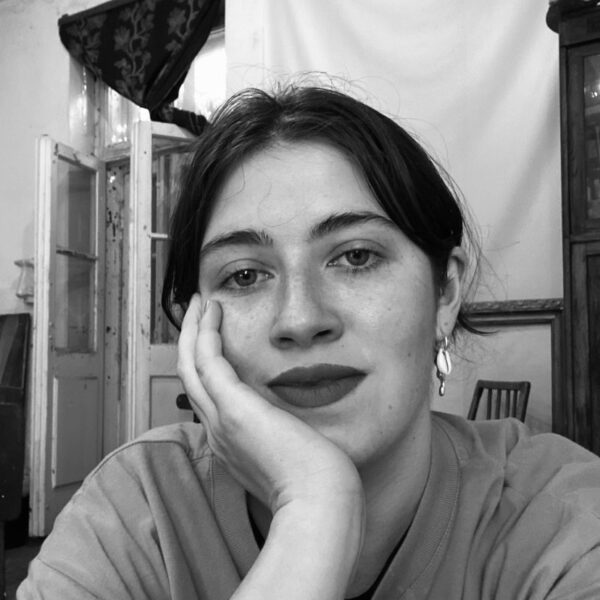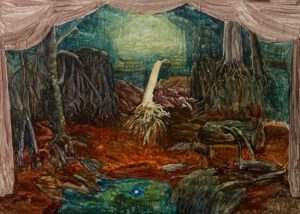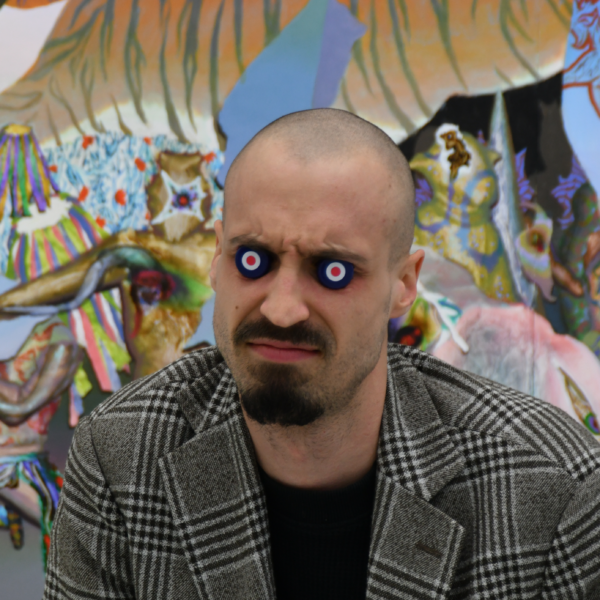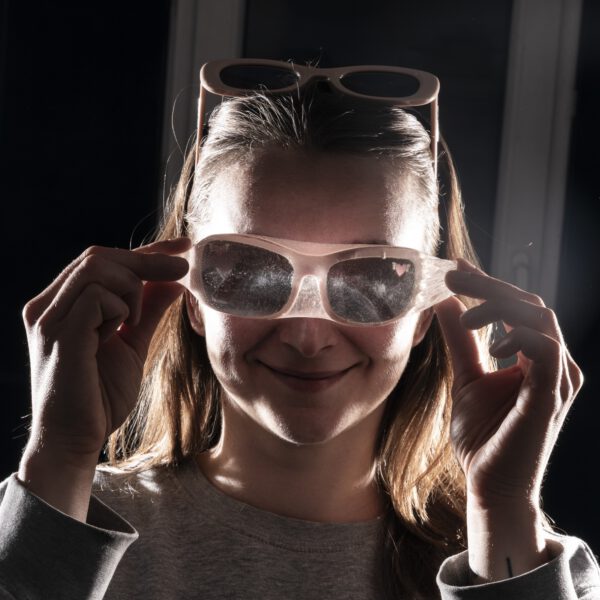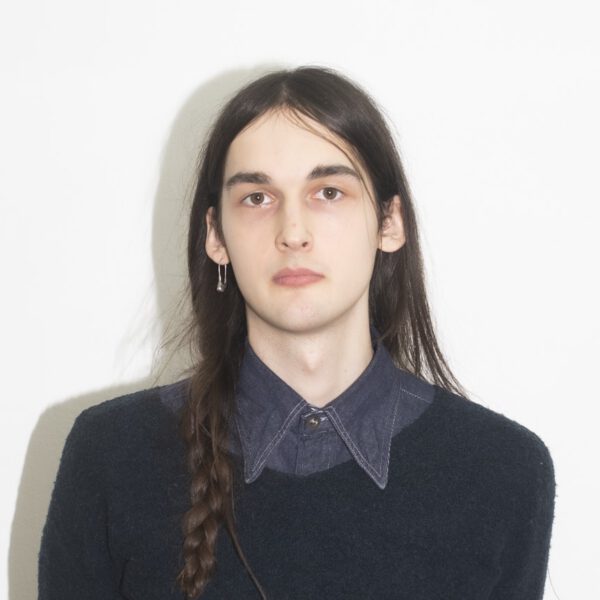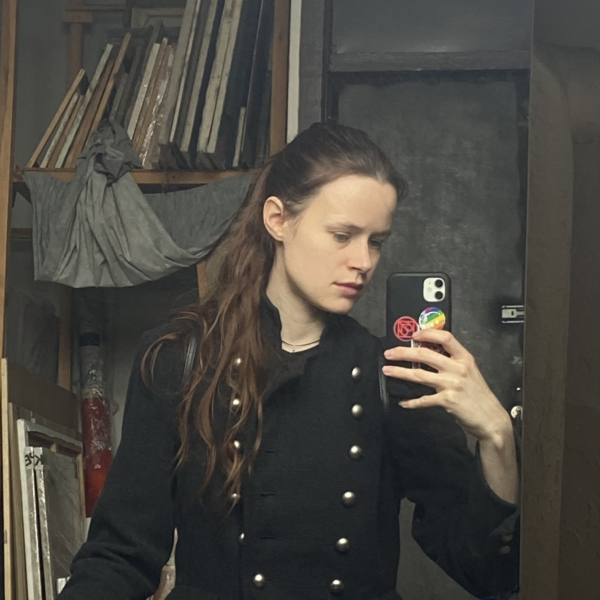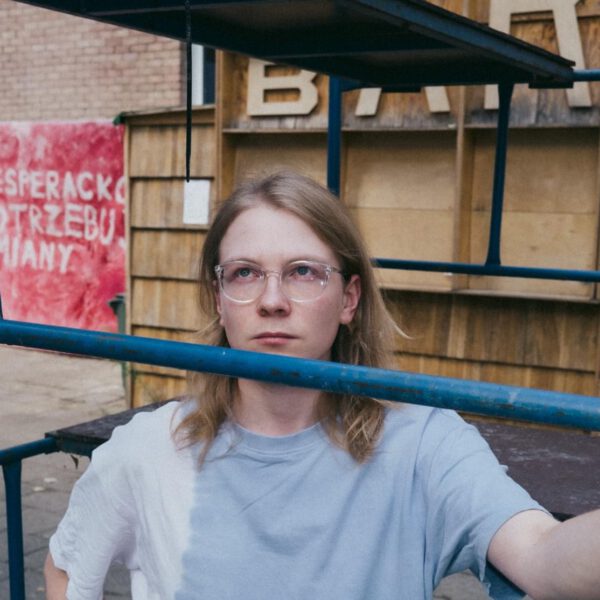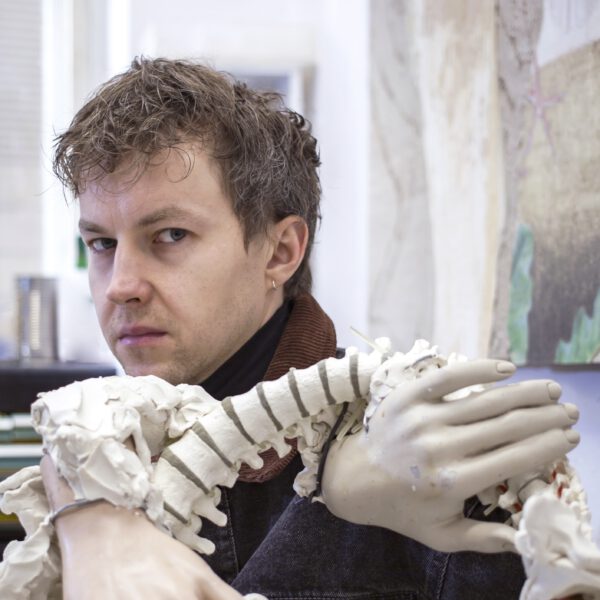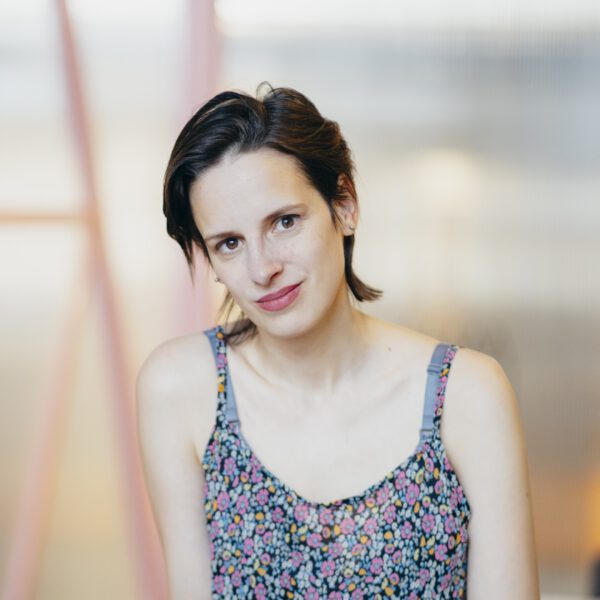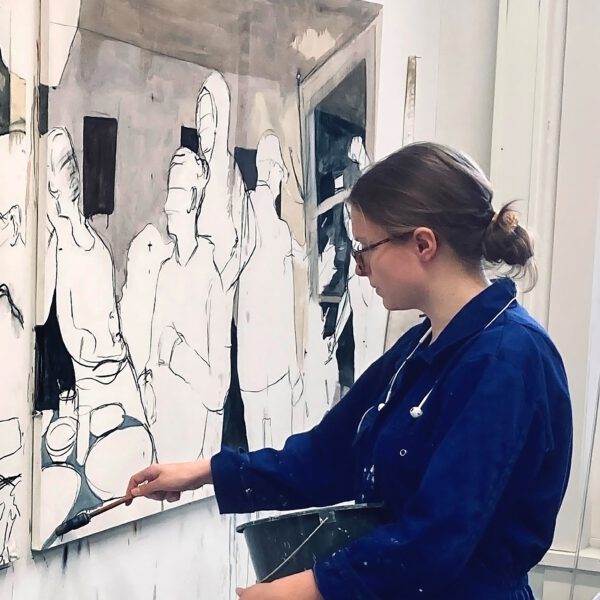Kateryna Aliiny (1998) is a Ukrainian artist born in Luhansk and based in Kyiv. Her artistic practice is focused on painting and text. Kateryna works mainly with the topic of the landscape that was damaged from the war and occupation. She works through the images of nature and non-anthropocentric optics.
Her work often juxtaposes two perspectives on the land/soil/landscape. One, as an ever-reviving source of life, being it in relation to agrarian culture or not. The other one, as a place of battle and suffering, hurt by human’s violence. It also brings subjectivity to the land.
The work from the Neglected Part of the Garden series is a part of a large, two-year cycle of works dedicated to a closer look at the soil and landscape of occupied Donbas. Commenting on the series, Aliinyk points out that even if a landscape does not seem to retain traces of tragedy for long, a closer look usually reveals its presence in the end. Artillery warfare, landmines, and bloodshed change the soil significantly over time. (…) During 10 years despite the presence of war, there is also a striking beauty and majesty in the abandoned landscapes in the east of Ukraine. Before the war they had some practical function, temporarily lost it and now live their own lives, taking on other forms.
Speaking of the Slow Plot Development and What the Heroine Wants Is the Main Question from We Got Front-Row Tickets series, Aliinyk notes that contemplating nature in the presence of war is perhaps the most vivid and sensual experience of my life.
Love during war is as multicoloured as horror—so sharp and piercing that it penetrates where I do not expect to feel it at all. (…) My landscape and I parted ways ten years ago, and from afar, it is as clear as can be that it was not just a backdrop for my adventures, a tool, or a resource but a full-fledged protagonist. It’s okay if my absence is just my own personal tragedy; it’s not like the grass there has stopped being green or the sky has stopped being blue. Maybe it seems even more blue against the dark earth of fields long untouched by us.
- What the Heroine Wants Is the Main Question
Kateryna Aliinyk (ur. 1998) – ukraińska artystka urodzona w Ługańsku i mieszkająca w Kijowie. Posługuje się głównie malarstwem i tekstem, często skupiając się na zagadnieniu krajobrazu zniszczonego przez wojnę i okupację. Wykorzystuje obrazy natury, przede wszystkim widzianej z perspektywy nieantropocentrycznej.
Jej prace często zestawiają dwa spojrzenia na ziemię/glebę/krajobraz – po pierwsze, jako wiecznie odradzające się źródło życia, nie tylko w odniesieniu do kultury rolnej, a po drugie, jako miejsce walki i cierpienia, noszące ślady ludzkiej przemocy. W ujęciu artystki ziemia obdarzona jest podmiotowością.
Praca z serii Zaniedbana część ogrodu jest częścią większego, realizowanego od dwóch lat cyklu, w którym artystka przygląda się ziemi i krajobrazowi okupowanego Donbasu. Aliinyk podkreśla, że „nawet jeśli wydaje się, że krajobraz nie przechowuje śladów tragedii, bliższe spojrzenie zwykle ujawnia jej obecność. Ostrzał artyleryjski, miny i rozlew krwi z czasem znacząco zmieniają glebę. […] Pomimo toczącej się od dekady wojny opuszczony krajobraz wschodniej Ukrainy jest uderzająco piękny i majestatyczny. Przed wojną spełniał określoną, praktyczną funkcję, którą tymczasowo utracił i teraz żyje własnym życiem, przybierając różne formy”.
Odnosząc się do prac Powolna zabudowa działki oraz Najważniejsze pytanie to czego chce bohaterka (z serii Mamy bilety w pierwszym rzędzie), Aliinyk zauważa, że „kontemplowanie natury w obliczu wojny jest prawdopodobnie najbardziej przejmującym i zmysłowym doświadczeniem w moim życiu. Miłość w czasie wojny jest równie wielobarwna jak trwoga – tak ostra i przeszywająca, że dociera tam, gdzie nigdy nie spodziewałabym się jej poczuć. […] Rozstałam się z moim krajobrazem dziesięć lat temu i z daleka tym wyraźniej rozumiem, że był on nie tylko tłem dla moich przygód, narzędziem czy zasobem, ale pełnoprawnym bohaterem. Moja nieobecność to jedynie moja osobista tragedia – trawa nie przestała być przez to zielona, a niebo niebieskie. Przeciwnie, czarna ziemia, po której od dawna nie stąpaliśmy, jeszcze bardziej podkreśla jego błękit”.
- What the Heroine Wants Is the Main Question







